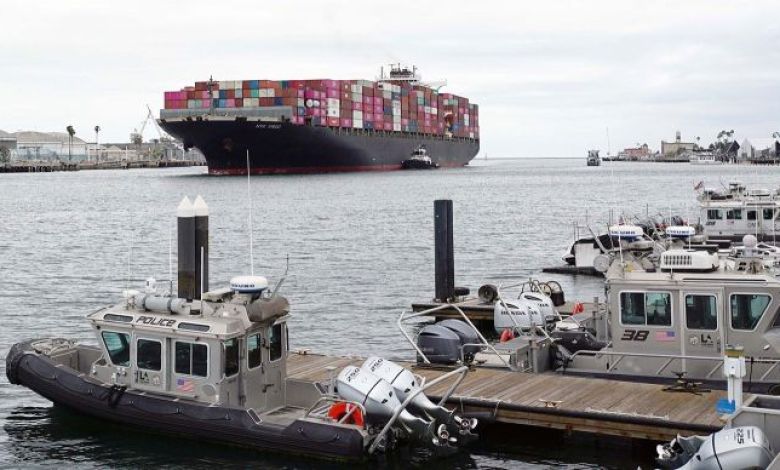Companies have found strange but legal means to avoid Trump's prices

new York
Cnn
–
A few months ago, the words “linked warehouse” and “harmonized system codes” might not be in the minds of many owners of American companies. Now they are under massive spotlights.
After President Donald Trump missed a huge minimum rate of 145% on most goods from China, 25% prices on cars, automotive parts, aluminum and steel and a 10% price on almost imports from all countries, American companies are desperate for means to reduce their import costs.
Two popular – and legal strategies – involve these linked warehouses to postpone the harmonized system prices and codes to qualify for lower rates.
There are more than 5,000 classification codes of different products that governments around the world use when assessing prices.
Consumers do not care if the imported coat they wear was officially classified as a gale or a raincoat.
But for companies, this distinction can differentiate between lower and higher rate rates – and potentially make a profit or not. And to qualify for the lower rate, all that a manufacturer should do is tinker with the materials of the product, otherwise known as the tariff engineering.
For example, All Stars Signature Sneakers of Converse have a sole containing felt as opposed to the rubber fully known in sneakers. This can be a useful decision, as shoes produced abroad with felt funds could be considered “house slippers” for tariff codes. And house slippers have qualified for rates of rate significantly lower than other types of shoes in the past. (Nike, the parent company of Converse, did not respond to the request for comments from CNN. CNN could not determine the latest prices for sneakers compared to house slippers given their respective classification codes.)
Columbia Sportswear did not hesitate to use pricing engineering. “I have a whole team of people who work … with designers and developers and merchants and with customs, in fact, and to ensure that during the design process that we are considering the impact of prices,” said Jeff Tooze, vice-president of global customs and trade at Columbia Sportswearswear Tell Marketplace in 2019.
Among its uses of pricing engineering: the addition of small zipper pockets under the size of the shirt to qualify for lower price rates, he said.
Even in the current environment, with Trump's efforts to target prices in China and specific sectors, there are still many opportunities for companies to priced engineering products, said Erik Smithweiss, partner of the GDLSK law firm, who specializes in commercial compliance.
Although there is little way to get out of the initial tariff of 20% that Trump has taken from China earlier this year, there are opportunities to avoid the additional 125% that came into force last month. Indeed, Trump, in some cases, discreetly exempted certain products from these prices.
“We are working with companies that say:” Gee, I really want to be on this list, look at my pricing codes, “said Smithweiss. “If we think there is something that can be changed on a product that will transform it into one of these exempt codes, we will work with them to find out if it is a reasonable position to take.”
But the simple fact of slapping a new code on a product is not enough; The product itself must be different in one way or another. Customs agents and American border protection can closely examine the goods, in particular, for example, to send tissues to the laboratories to see if they meet the applicable requirements, Smithweiss told CNN. If this is not the case, the importer can be subject to a penalty in addition to the higher price.
The itinerary of the glued warehouse takes the opposite approach. Rather than spoiling the content of a good or moving production elsewhere, companies can import products from around the world without paying prices when they enter the United States – as long as it remains locked in a special warehouse regulated by customs.
Companies can keep goods in these warehouses up to five years without paying a price. They only pay the current rate rate when it removes storage goods.
It is a bet that tariff rates will drop short or medium term.
Jennifer Hartry, president of Howard Hartry, a customs broker who praises bonded warehouses, CNN Jones Jones of CNN told Julia Vargas that 95% of the requests she had received concerned goods from China.
Hartry said his family business based by the port of Los Angeles has undergone a slowdown in recent years, but since Trump introduced a multitude of new aggressive prices, business has been booming.
There is no limit to the monetary value of goods stored in glued warehouses – the only constraint is how much a business can hold in the space it rents.
For example, Hartry said that the value of the products of its tenants varies from $ 37,000 to half a million dollars. These goods include lithium batteries, metal stems and electronics such as televisions and treadmills.
Hartry said it didn't lose how busy toll rates take. At the same time, she told Vargas de CNN: “It is saving our business, which we are grateful.




